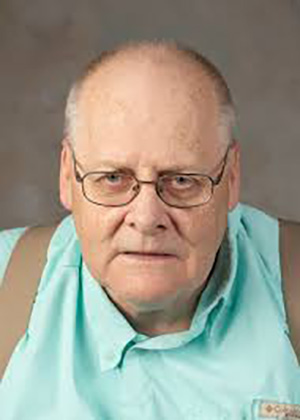By Greg Markley
Two weeks from today (Jan. 20, 2021) Joe Biden will be inaugurated as U.S. president after winning a tough election against President Donald Trump. Biden will be the oldest man elected for the first time, at 78. He will also be the first president whose home is Delaware (but he was born in Pennsylvania).
Kamala Harris, 56, will be our country’s first female VP, the highest U.S. female elected official ever, and the first African American and first Asian American vice president. The event itself makes history too, as the most-scaled one in years, due to the pandemic. At 20 years old, I attended Jimmy Carter’s inauguration and wrote about it for my college newspaper. Next week I reflect on Ronald Reagan’s first inaugural, which I also covered as a young reporter.
To pay for the nine-hour train trip to Washington, D.C., I took a job for the three weeks before my friend John and I departed for the nation’s capital. A big part of my workday was spent grabbing the gizzards from chickens and readying them for sale. It was not exactly a clean or fun job. But I was happy to be able to go to Washington, D.C., for the first time.
I had no idea so many consumers like chicken gizzards. After all, they are cut from the digestive tracts of chickens. The gizzard basically grinds up the foods the birds eat. Then the food proceeds to the stomach. Gizzards are popular worldwide. I only dealt with chicken gizzards for 20 hours a week. After those three weeks, even if the new president asked me, I did not want to even see a chicken.
As college writers, we did not have access to the same media credentials that CBS’s Dan Rather and the Washington Post’s Bob Woodward had. But we were inside the “rope line” and had good views of the inaugural parade. Nobody yelled out “Fake News” as they might now after seeing press passes. (They did that at a 1998 Judge Roy Moore rally in Montgomery.)
Georgia’s Carter became the 39th U.S. president, and Walter Mondale of Minnesota was sworn in as the 42nd vice president (Mondale, now 92, is regarded by historians as the most effective VP, while Dick Cheney is known as the most powerful). At noon, the temperature was 28 degrees, with a wind chill in the high teens. Not atypical for D.C. in mid-January.
I was pleased by Carter’s opening sentence: “For myself and for our nation, I want to thank my predecessor for all he has done to heal our land.” Even Gerald Ford was astonished. Would that happen today, the winner praising the man or woman he defeated? The price for honoring your ex-foe would be too high, and hyenas in your own party would call you “soft on the enemy.”
Carter said, “Two centuries ago our nation’s birth was a milestone in the long quest for freedom, but the bold and brilliant dream which excited the founders of this nation still awaits its consummation. I have no new dream to set forth today, but rather urge a fresh faith in the old dream.”
Ten or so minutes into the inaugural parade, Carter’s wife Rosalynn and their four children got out of the car. Apparently to the chagrin of the Secret Service, they did something that had never been done in an Inaugural. They walked from the Capitol to the White House. When they walked by, I was only 5 or 6 feet away from them, in an area cordoned off for the Press.
Carter thought, correctly, that openness and informality would be received by the public as a good sign. Before him, presidents had been shot out (Kennedy); haunted out (Johnson); pushed out (Nixon); and voted out (Ford). So he took the big risk of facing danger, because he wanted to show that a new presidency had dawned.
After the parade, we went to the National Press Club and met a star reporter for the Baltimore Sun. He said: “Oh, you are from Rhode Island. Do you know Providence College?” John said, “Yes, I flunked out of there.” The Sun guy moved away. I missed an opportunity to connect with a top columnist. Forty-three years after his Inauguration, Jimmy Carter is still here, at age 96. (Next week: Ronald Reagan’s first inaugural.)
Markley has lived in Lee County for 21 years, on and off. He has master’s degrees in education and history. He taught politics as an adjunct in Georgia and Alabama. He was U.S. Army Europe Journalist of the Year (1993) for articles from Croatia, Germany and Macedonia.

